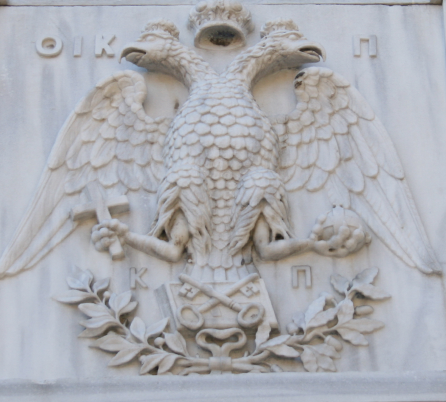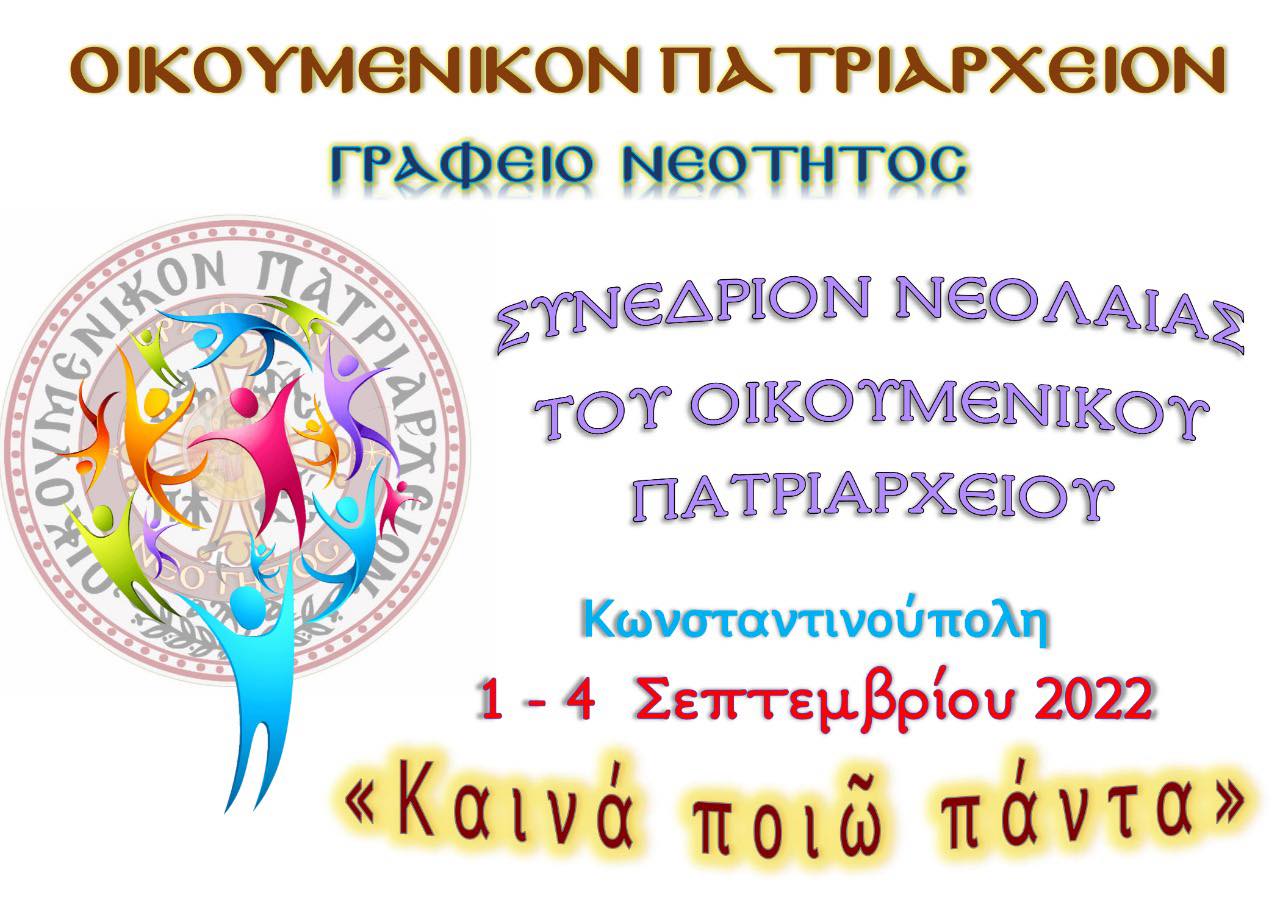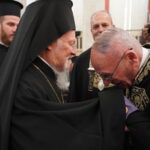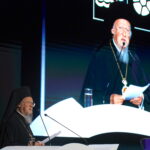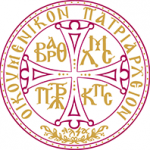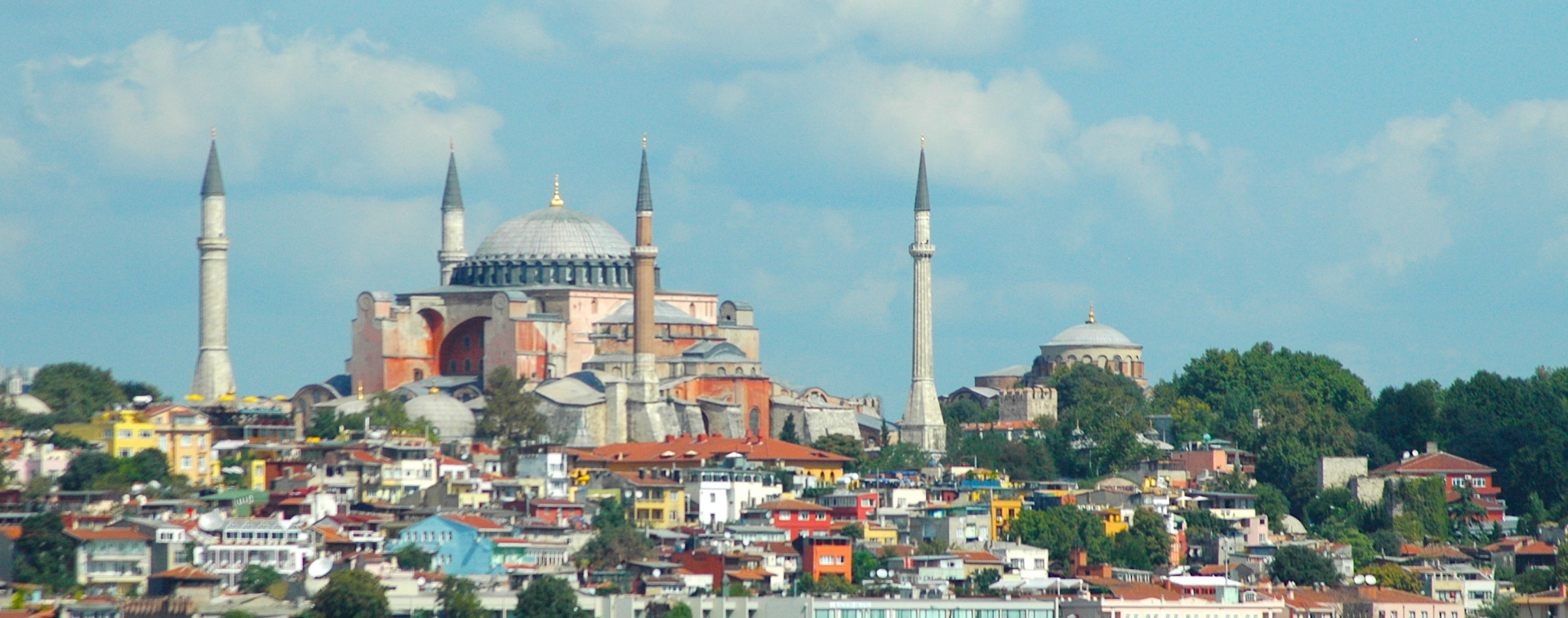







δι᾿ ημάς, είναι το «Συνεχίζομεν».
Συνεχίζομεν, διότι ο φιλάνθρωπος Θεός,
ο «αεί μεθ᾿ ημών», μας έταξε να φυλάσσωμεν εδώ,
εις την Πόλιν του Κωνσταντίνου,
τον τόπον και τον τρόπον του βίου του Γένους”
Οικουμενικός Πατριάρχης Βαρθολομαίος
Δελτία Τύπου και Ανακοινώσεις
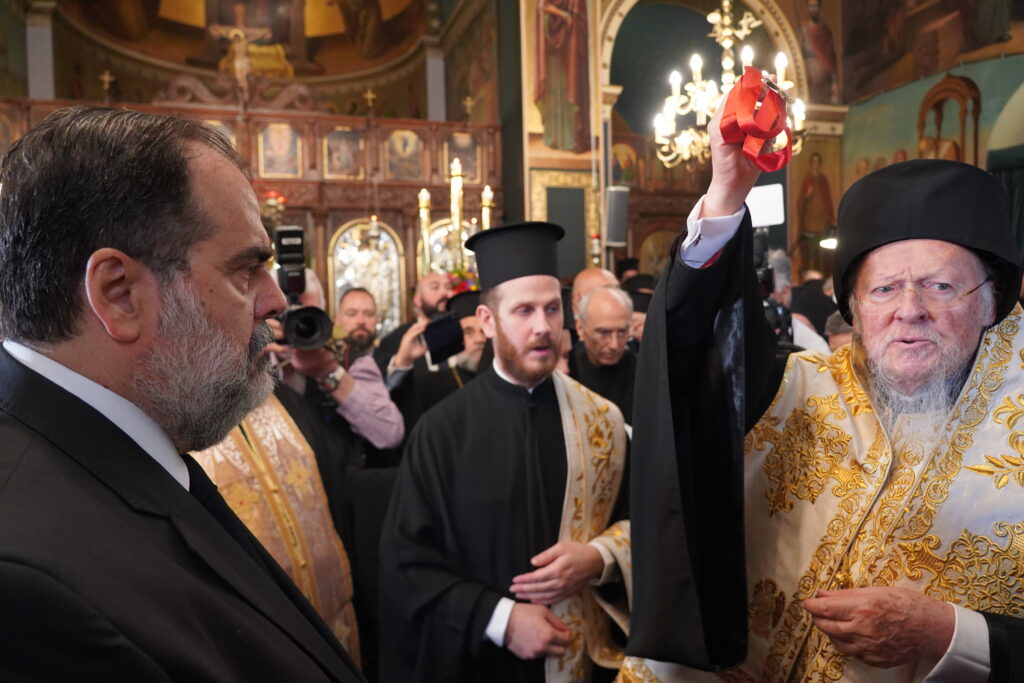 18.04.2024Ο Οικουμενικός Πατριάρχης χειροθέτησε στο Οφφίκιο του Άρχοντος Ευταξία τον Εντιμολ. κ. Νικόλαο Πατέρα Posted in: Δελτία Τύπου Η Α.Θ. Παναγιότης ο Οικουμενικός Πατριάρχης χειροθέτησε την Πέμπτη, 18 Απριλίου 2024, στον Ι. Ναό Αγίου Νικολάου του Οικουμενικού Πατριαρχείοου,… Περισσότερα
18.04.2024Ο Οικουμενικός Πατριάρχης χειροθέτησε στο Οφφίκιο του Άρχοντος Ευταξία τον Εντιμολ. κ. Νικόλαο Πατέρα Posted in: Δελτία Τύπου Η Α.Θ. Παναγιότης ο Οικουμενικός Πατριάρχης χειροθέτησε την Πέμπτη, 18 Απριλίου 2024, στον Ι. Ναό Αγίου Νικολάου του Οικουμενικού Πατριαρχείοου,… Περισσότερα
